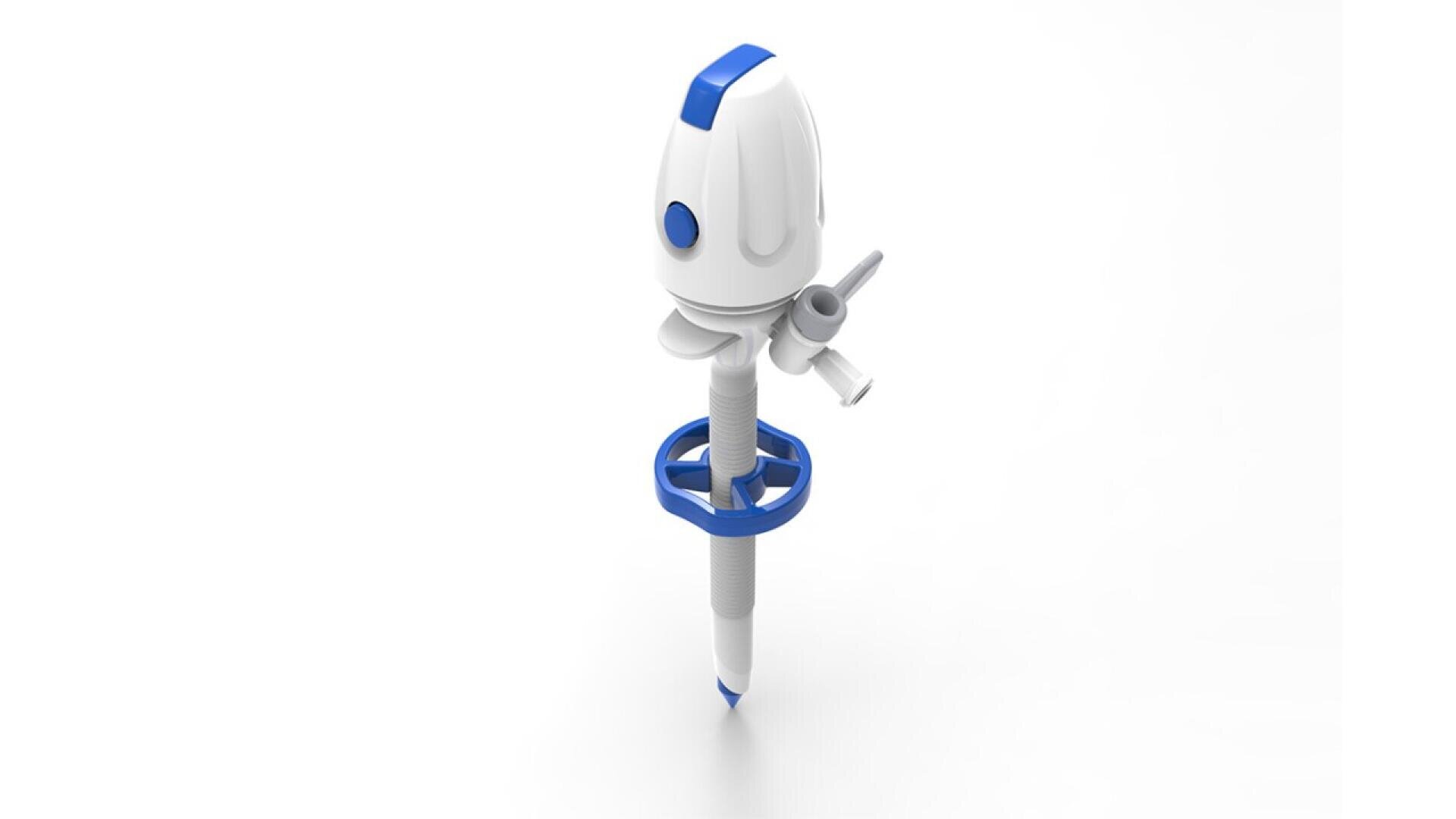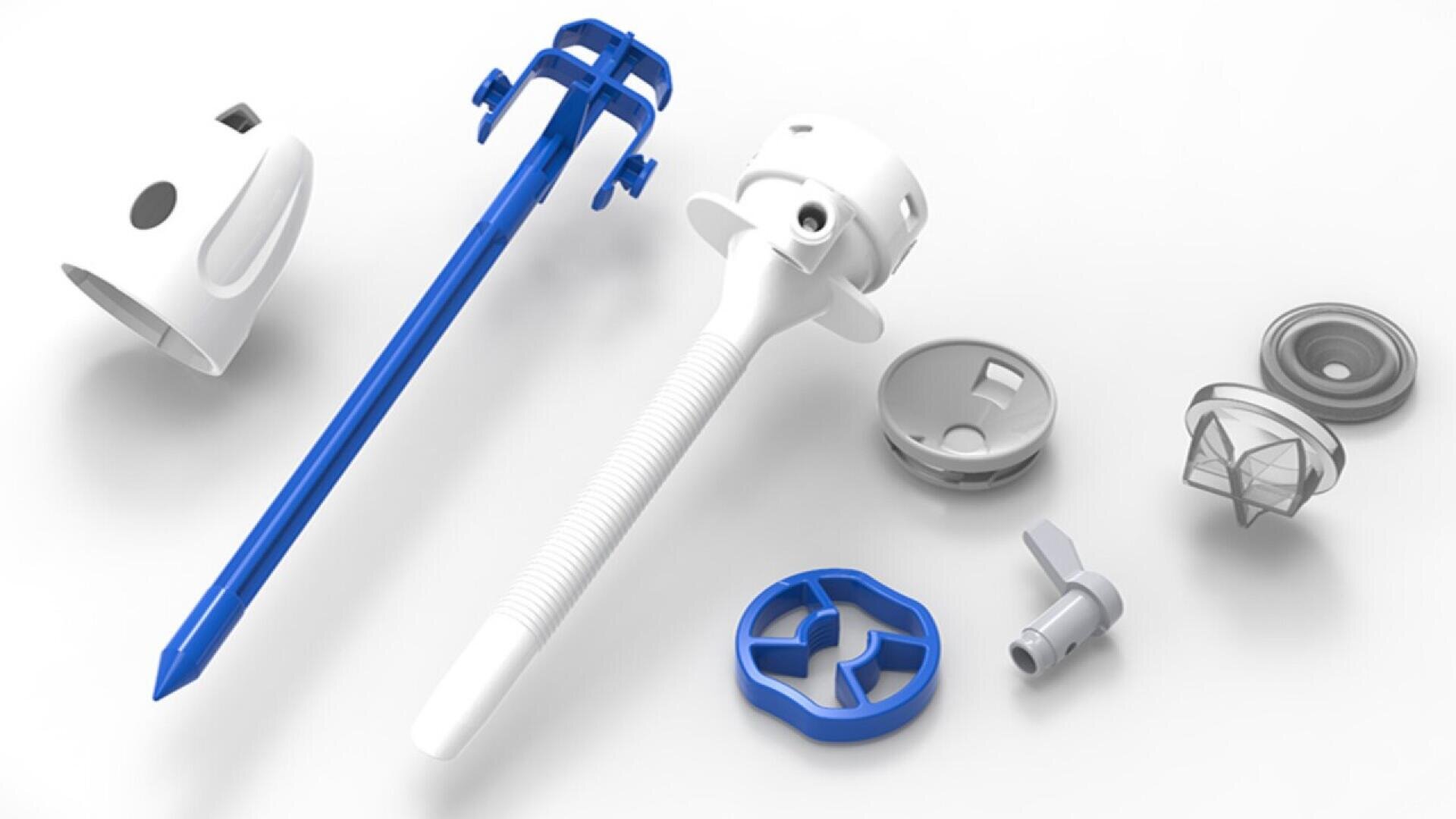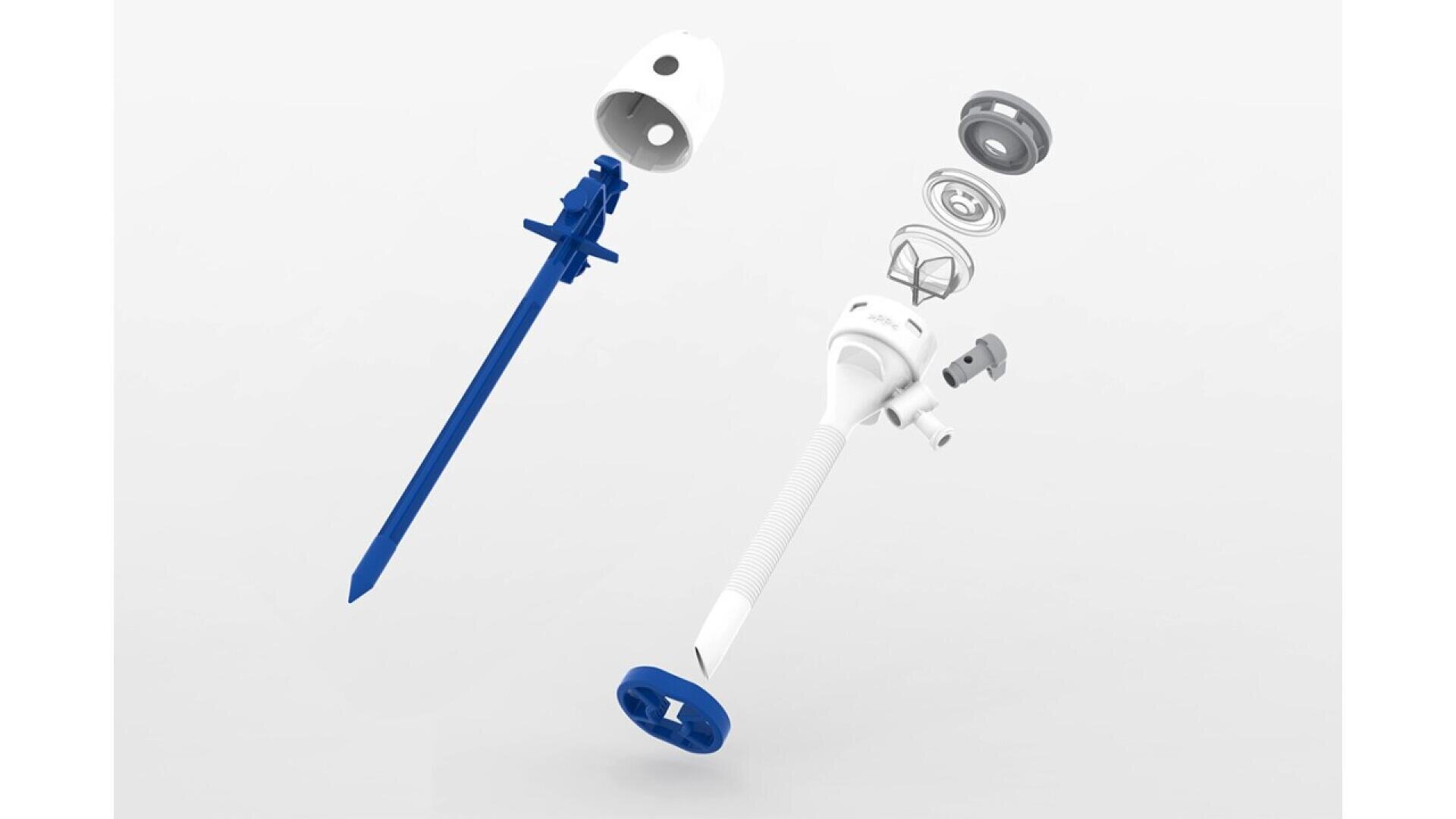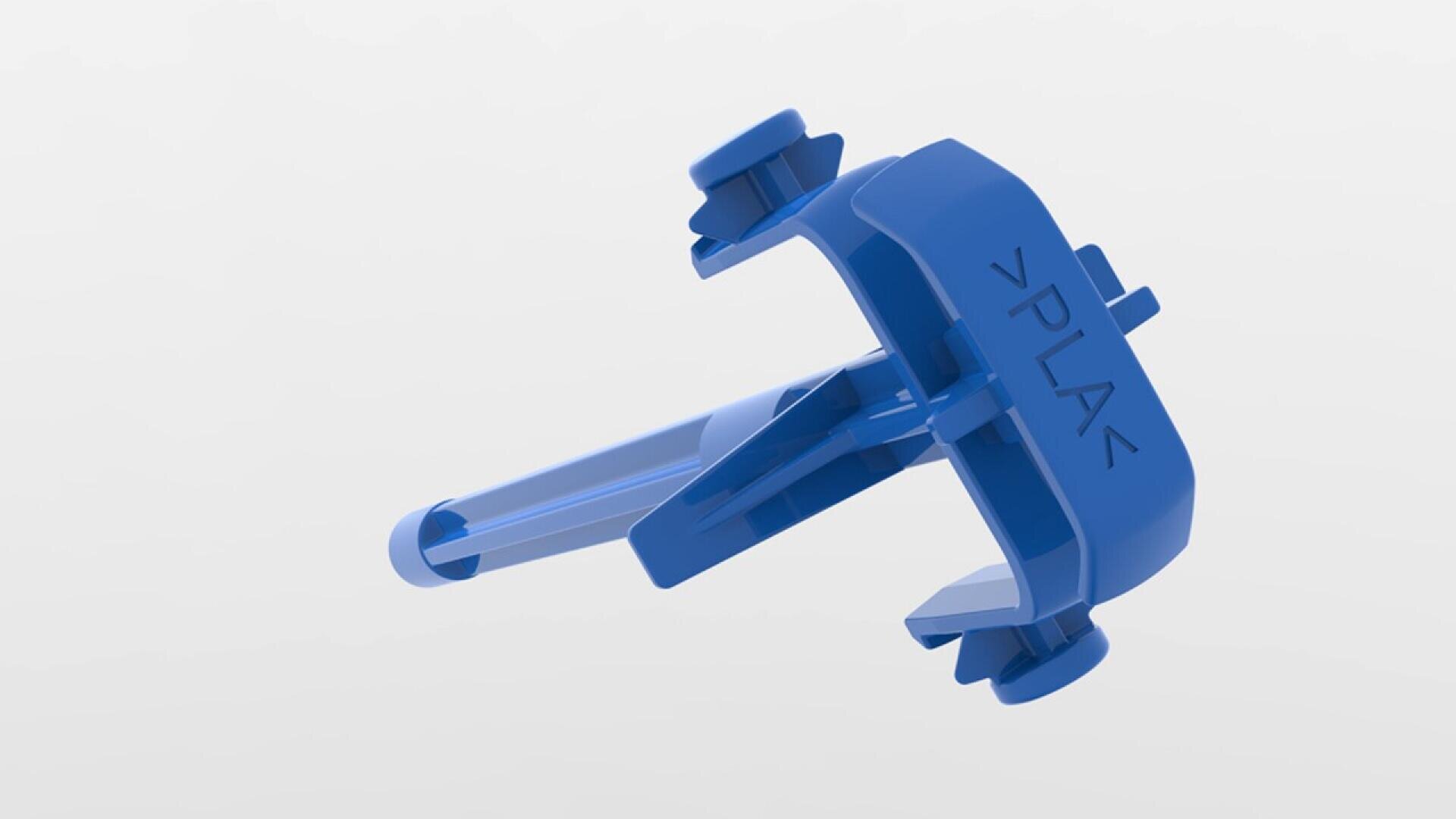A Single Use Medical Device Designed for Sustainability
Case study from Röchling Medical on how 50 tons of CO2-equivalent could be saved by applying design for sustainability principles to a conventional single use trocar.
Improving the Carbon Footprint of Single Use Medical Devices
The high share of single use instruments in medical procedures is partly a hygienic imperative but is also an increasing environmental concern.
A trocar is a sterile device used in minimally invasive procedures to provide access to the body for laparoscopic instruments. Over 13 million laparoscopic procedures are performed globally per year, using this single use device.
How can the carbon footprint of the standard trocar be positively influenced by intelligent device design?
Röchling Medical has applied design-for-sustainability (DfS) principles to the development of a standard bladeless single use trocar made of plastic.
A Trocar re-designed based on Design for Sustainability principles
We analyzed the product comprehensively by examining all relevant design-related elements that have an impact on its sustainability:
1. Design Optimization for Material Usage
Reducing weight:
Using advanced simulations such as FEM and flow analysis we were able to slim down the design so that 32% of material could be saved without any loss in functionality or stability.
Reducing the number of components:
A standard trocar consists of a minimum of 12 parts. Our updated design consists of only 8 parts. This means a reduction in the number of required injection molds, as well as a significant reduction of process steps for assembly.
2. Design for Disassembly
Modularity of components:
A standard trocar usually does not have detachable connections. In our optimized design, the components are connected to each other by snap-fits. These hold securely during use, but are easier to assemble and, conversely, easy to disassemble again for disposal or reuse.
3. Material Selection
Many trocar components are conventionally made from polycarbonates containing BPA. We optimised the design for the use of more environmentally friendly materials, such as PP and biobased PLA. These materials do not contain any chemicals that might elicit health concerns.
Due to the modular design, the components can be easily disassembled for the recycling of the different materials.
4. Design for Recycling
Minimal material variety and recyclability:
In a standard trocar there are a minimum of five different materials. We reduced this to three different materials: PLA, PP and Silicone. PLA and PP are recycling-friendly alternatives.
Material identification:
To simplify material separation, the materials are clearly marked on the components of the trocar optimised by Röchling Medical.
The Result
In terms of material production and processing, the global warming potential of the trocar design optimised based on Design for Sustainability principles is reduced by 51% compared to a conventional trocar.
With 1 mio. sustainable trocars, 50 tons of CO2-equivalent could be saved. This is comparable to the CO2 emissions for one person of 27 flights from Frankfurt to New York.





